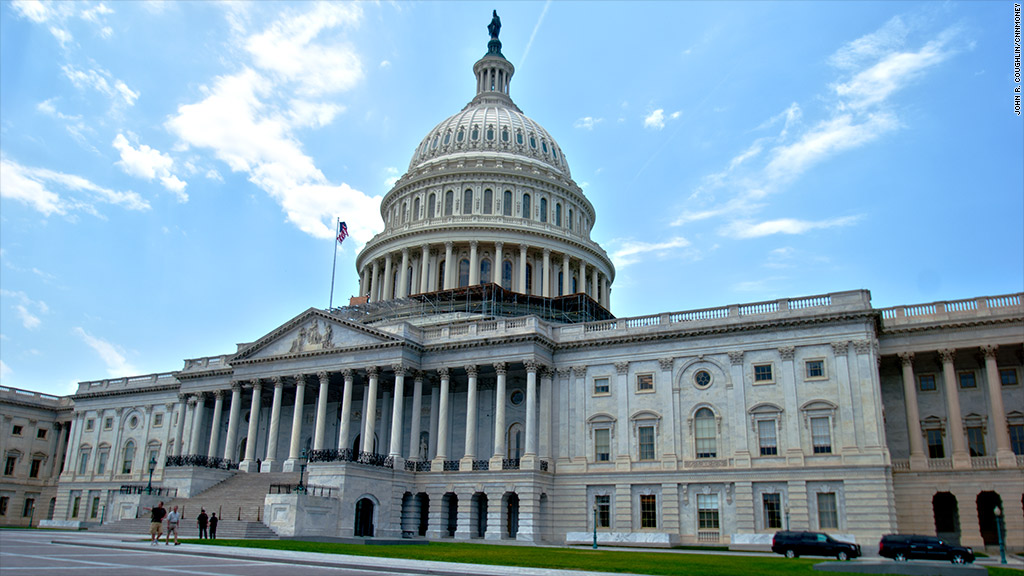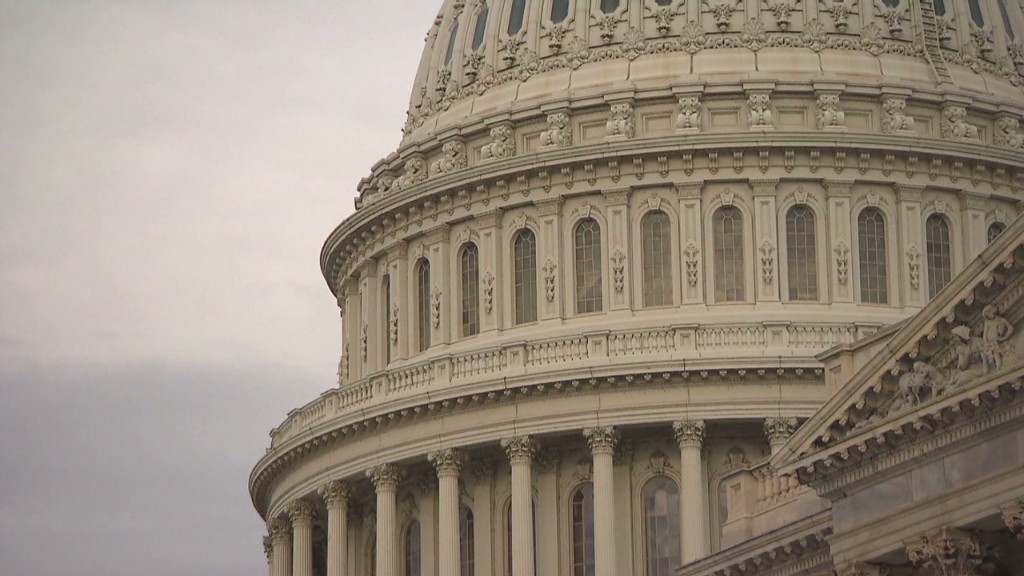
Treasury Secretary Jack Lew warned the world that the U.S. government won't be able to pay all its bills on October 17 if Congress doesn't raise the debt ceiling.
The market's response: Wake us up when the games are done.
"Investors are pricing in a last-minute solution," said J.P. Morgan global strategist Anastasia Amoroso. "We've seen this sequence of events before."
Many times in fact.
That appears to be the main reason why there is no sense of panic in the market.
Related: Never-ending charade of debt ceiling fights
While it's true that stocks fell for five straight days before snapping their losing streak on Thursday, the sell-off has been relatively mild. The three major U.S. market indexes are still up between 17% and 25% for the year.
Dan Arbess, who runs Perella Weinberg Partners' Xerion fund, says traders expect a resolution. But he added that "the climate looks possibly worse than ever this time."
And if Washington grows even more dysfunctional in the coming weeks, that may really rattle investors.
#YourEconomy: How will a government shutdown affect you?
"The longer this drama continues, the greater the risk to markets and the economic recovery," Arbess said.
For William Larkin, a fixed income portfolio manager at Cabot Money Management, the drama in Washington has caused him to move money from the bond market into cash, effectively keeping it on the sidelines until the budget issues are resolved.
Related: Debt ceiling cash crunch: Millions won't get paid
The deadlines: There are two key deadlines looming. The threat of a government shutdown on October 1st is decidedly less terrifying to investors.
It happened previously. On November 14, 1995, the government failed to pass a budget and shut down. After reopening on November 19 and failing to reach an agreement again, the shutdown resumed on December 16, 1995 and finally ended on January 6, 1996.

Investors barely seemed to notice. The Dow rose on most trading days during the two shutdowns.
October 17th is the more worrisome deadline. If Congress fails to strike a deal to raise the limit on how much debt the government can hold before then, the U.S. won't be able to pay all of its bills.
Related: How government shutdown would hurt Main Street
That note on the dollar bill - "backed by the full faith and credit of the U.S. government" - could start to lose some of its punch.
But even if there is no quick agreement to boost the debt ceiling, some think investors will buy more Treasuries. Larkin predicts that Treasury prices will rise if Congress doesn't strike a debt deal because they'll be seeking safety. Treasuries will still be viewed as the safest investment in the world despite a default.
After Standard & Poor's downgraded the credit rating of the U.S. in August 2011, stocks plunged more than 5% as investors raced into Treasuries, pushing bond yields down. Of course, that happened after a deal to boost the debt limit had already been reached. S&P was upset with the political process.
Still, investors should probably brace for some volatility in the next few weeks. Morgan Stanley's research analysts sum up the debt ceiling soap opera well.
"While the show seems interminably boring, the risk is that it will be punctuated with high drama that will be material for markets and the economy."
For now though, investors have changed the channel. The market isn't glued to the latest episode of "As Congress Turns."


